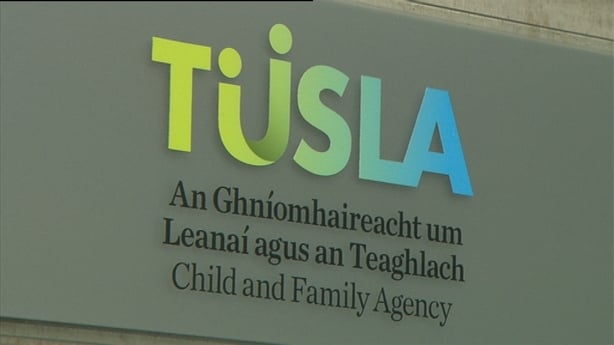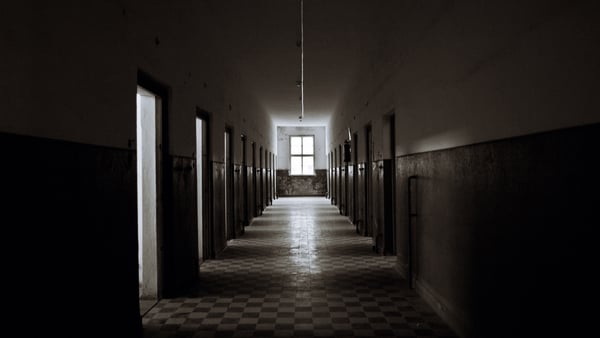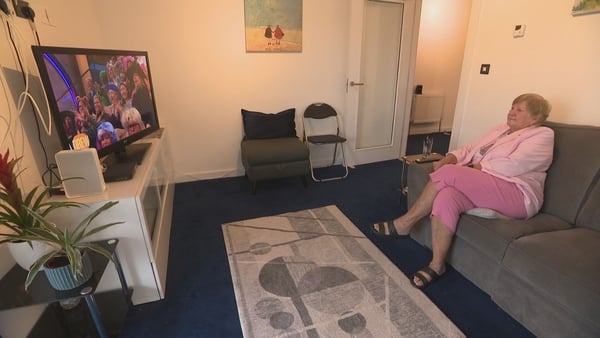Ireland's care system is at breaking point.
Once again, the Child Law Project has unveiled concern and frustration amongst the judiciary in its latest publication.
The Child Law Project publishes regular reports from the courts which make child protection orders.
Latest cases show that multiple judges were "in despair" of the system of care for children in Ireland.
One High Court judge described the lack of special care beds as "a tsunami about to reach shore and nothing is being done".
Those sentiments follow previous correspondence from the now retired Justice Dermot Simms to State agencies over his concerns regarding the treatment of children in care.
They are some of the country's most vulnerable, traumatised citizens, who are living in the shadows.
They are dependent on the State to protect and raise them, yet there are serious questions about the adequacy of the system they enter.
It's a complex system, but essentially relates to spaces where children - who are unsuitable for foster care - are placed.
Special Care services are for those aged between 11 and 17 years who can often have challenging, complex psychological and sociological needs.
Children are placed in these units by the court when their behaviour poses a risk of harm to their life, health, safety, development or welfare, and the placement is needed for the child's care and protection.
Initially set up as a short-term solution (12 weeks), they have become longer-term facilities.
A lack of step-down units means some children remain in Special Care, which goes against legislation.
Children’s Residential Services is another amenity available for those who have experienced neglect, abuse or family problems.
They are staffed on a 24-hour basis by social care workers, leaders and managers and are mainly run by voluntary services, which have been struggling since the recession.
Some voluntary providers are now on the cusp of closure, which will have catastrophic consequences for those reliant on their care.

However, despite warnings by the representative body - Children’s Residential and Aftercare Voluntary Association (CRAVA) - to the Department of Public Expenditure, the Department of Children and Tusla last year, there has been no action.
Inability to meet demand within the sector has led to the worrying exponential growth of another form of care - Special Emergency Arrangements (SEAs).
Millions are paid annually by Tusla to private, for-profit unregulated companies to accommodate children who are no longer in the care of their family.
There are concerns over the governance and oversight of SEAs, particularly around the registration of companies providing the service and over garda vetting.
Tusla said last year that it would reduce the use of SEAs, but this has not resulted in substantial closures.
By contrast, four of the 14 voluntary organisations represented by the CRAVA providers say they will be forced to close by the end of 2024.
So, how has it come to this?
Many point to the steady decline in residential care in the Republic of Ireland from the 1970s with 388 (7.2%) of all children in care in 2007 and 346 (5.5%) in 2017.
In recent years, the number of children and teenagers requiring care has risen due to difficulties that have emerged in households and wider society, particularly since the pandemic.
The profile of the children has also changed due to the growing numbers fleeing traumatic circumstances in other countries.
Lack of planning and investment has meant that the system has been unable to respond.
CRAVA says the State needs to recognise that residential childcare provision is in crisis.
It also points out that Tusla cannot provide the range and quality of care needed without necessary funding and support from other State agencies.
Indeed, the former child rapporteur, Conor O’Mahony, pointed out last week that neither Tusla nor the Department of Children can fix the problem unless the Department of Public Expenditure "loosens the purse strings" and gives the resources that are needed.
The shortage of appropriate care placements - in foster care, residential care and special care - dominates the latest Child Law Project publication.
Of particular concern are the cases where "the child was being sexually or criminally exploited".
The level of support in their care placement was not sufficient to stabilise them and address these risks, according to CEO Dr Maria Corbett.
"For some, as their case returned to court for review, the situation deteriorated and became very bleak, with staff scrambling to keep the child safe," she said.
Dr Corbett has warned that the lack of suitable care placements is having a domino effect that risks collapsing the care system.
"The knock-on effects of a lack of appropriate placements are compounding existing difficulties for children and staff and so we fear the system has begun to unravel," she said.
Despite the system teetering on the edge of collapse, some of the reports published today illustrate the positive, life-changing impact of the foster care system.
The Child Law Project has also commended District Court judges for paying close and empathetic attention to child care cases, "often devoting days to hearings, to the needs of some of the most vulnerable in our society - children at risk of neglect and harm".
One judge in a provincial city directed that a teenager's aftercare plan include arrangements for art classes in the future because she was a talented artist who had been commissioned to create pieces.
It offers some hope within a volume of cases that make for bleak reading and highlight a system that is in freefall.
Future planning, funding and a determination to make it progressive would help more children in State care reach their full potential.






